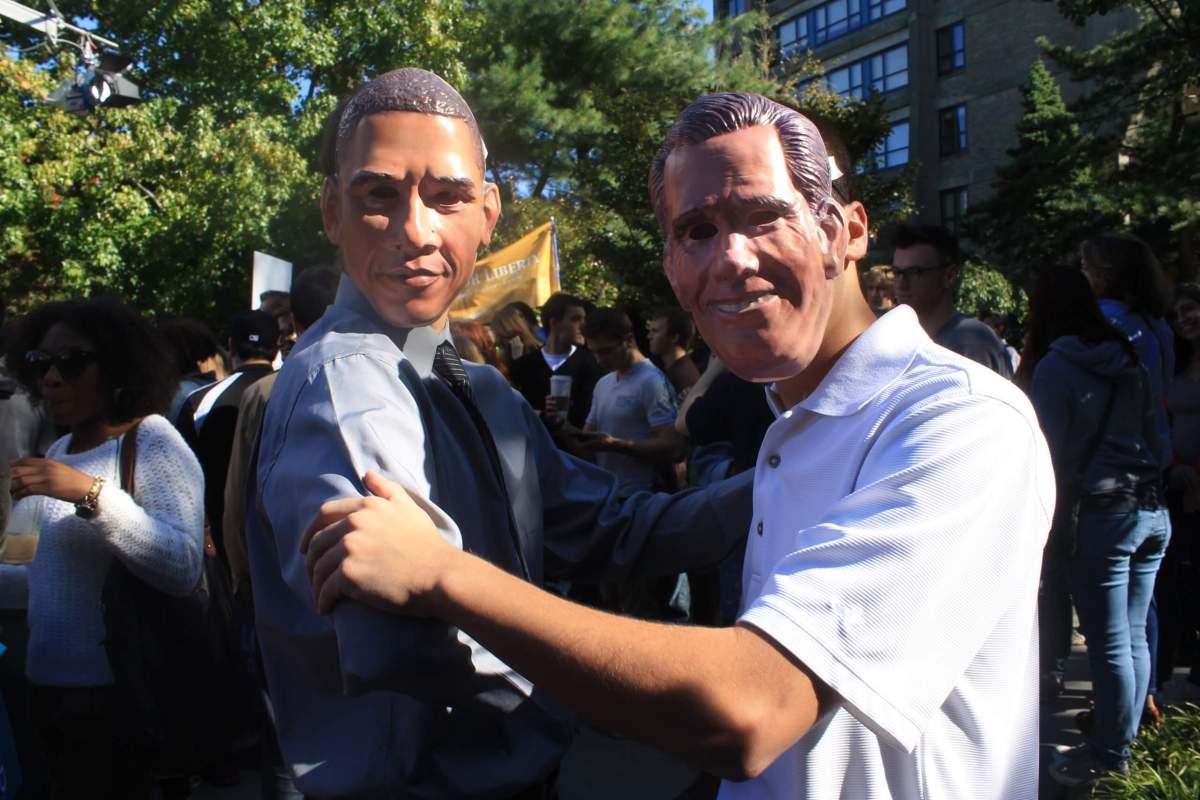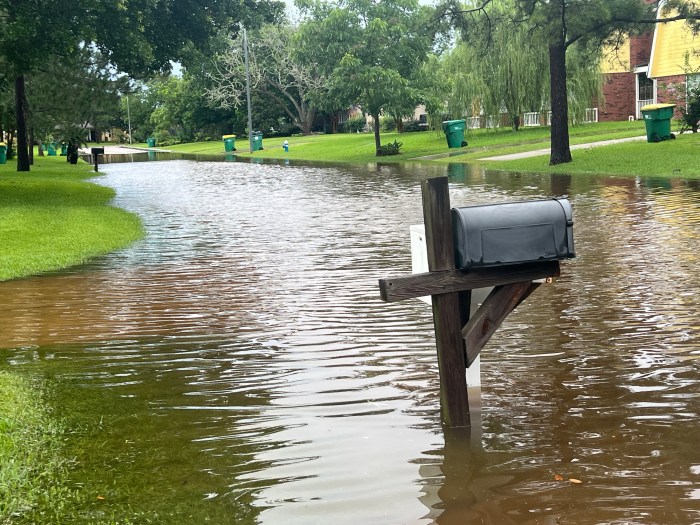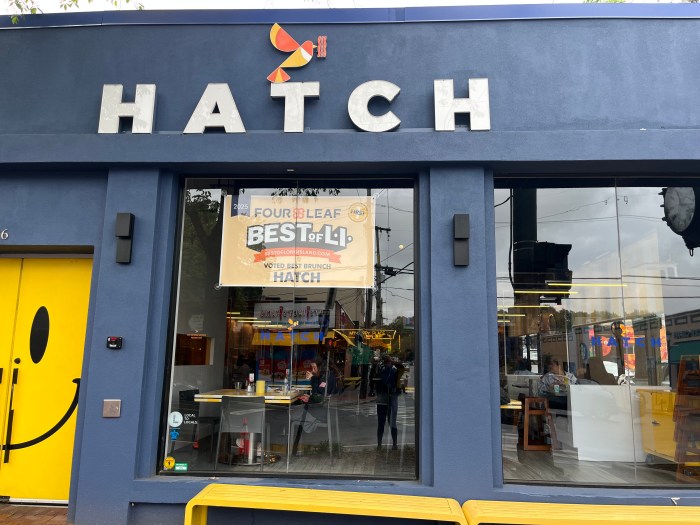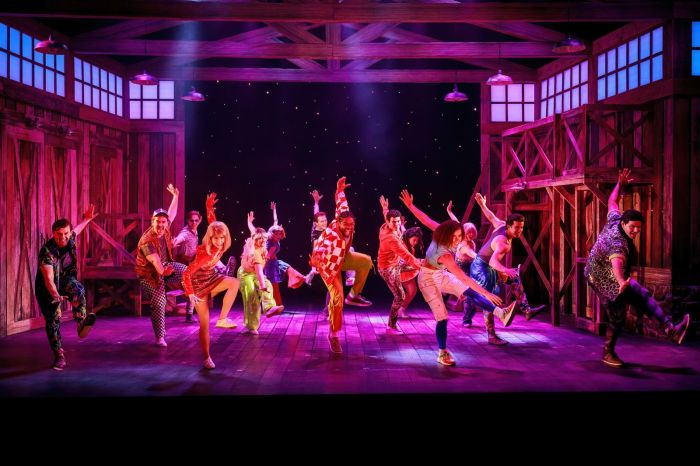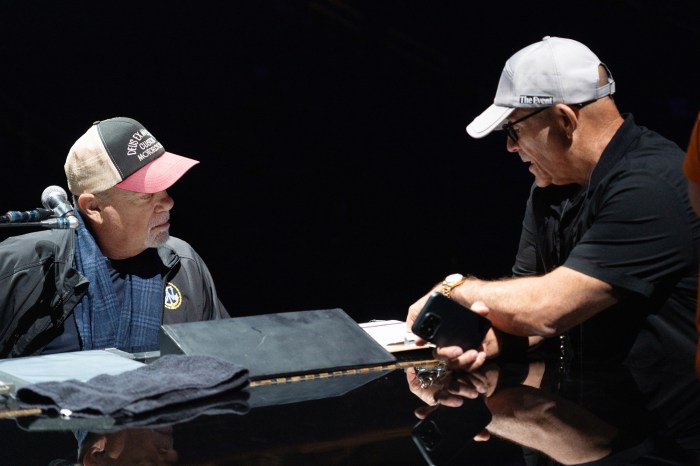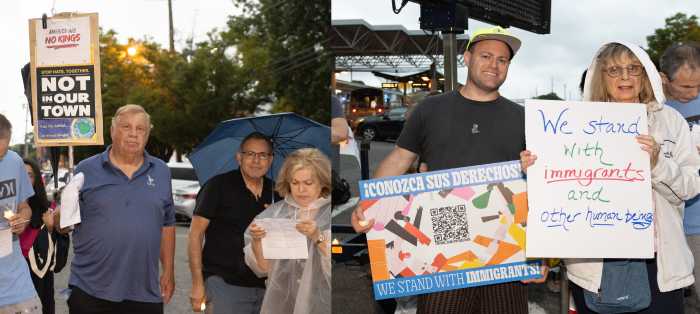
Loud cheers emanated outside the student center of Hofstra University, where blue “Forward” signs for President Barack Obama floated in the air and a group of Republican challenger Gov. Mitt Romney supporters proudly waved signs pledging for a better tomorrow.
This was the scene on the college’s Hempstead campus on Tuesday afternoon as a raucous group of students—and young voters—gathered to celebrate a day when their alma mater was the center of America’s political universe.
Many were there for the party. Others had legitimate issues on their mind that they wanted the candidates to hear—even if they weren’t selected as some of the lucky few that won a lottery for tickets to the main event.
“I would direct my question at President Obama, and ask him if he gets re-elected, what he’s going to do differently for the economy than he’s done the first four years of his administration,” said 18-year-old freshmen Stephen Campan.
The New Jersey resident expects to graduate in 2016, two years after troops are supposed to withdraw from Afghanistan. He’s excited that those men and women are coming back for good, but he’s worried about how many jobs will be available once he gets a degree.
“[The withdrawal] makes the availability of jobs a lot more scarce,” he said, as a Mitt Romney mask sat on his head.
Some freshmen students nearby said they were concerned about the cost of college and would like to hear the candidates detail their plan for student debt, an issue that never came up during the first debate in Colorado.
“I don’t want to be putting money into a federal program that’s just wasting money on…kids who aren’t using it,” said one of students. “I’d like to see it go to kids who have higher goals.”
“I’d like to see it go to kids who have higher goals,” he added.
Environmental issues also came up as students cheered the arrival of Chris Matthews of MSNBC to the tent where the network was broadcasting live.
Senior Corey Protin, 21, recently did a documentary on hydrofracking, or “fracking,” a controversial drilling technique that has become a top environmental issue in recent years.
“I’ve watched a lot of documentaries on it and I’ve seen the effects that fracking has on people’s lives,” he said. “I’m not for fracking at all.”

But he admitted the candidates rarely discuss environmental issues during debates. He believes candidates don’t want to “take the gamble” of touching upon a “touchy” topic.
Outside the MSNBC tent, students scurried around, hoping to catch many of the events that the campus was offering.
But Campan, the freshmen, thinks the overall experience benefits all students because they got to be involved in political events that don’t usually attract the attention of busy undergrads.
“I definitely think it helps people get involved because now in classes, since we all have a common thing through the debate, people who weren’t even interested in politics in their first place are now formulating their own opinion,” he said.
Meanwhile, several lucky students were waiting on line to pick up tickets they won through a lottery.
Lauren Mansley, of Wantagh, said she was so excited when she got the email notifying her that she would attend the debate, that she jumped up and down at a nearby mall.
“It’s definitely cool to see them in person, it will definitely affect my vote,” said Mansley, an undecided voter.
Mike Schulman, a grad student, wasn’t as enthused. He was critical of the candidates for using talking points, instead of speaking their minds.
“It’s rhetoric,” he said, “it’s not real talk.”




